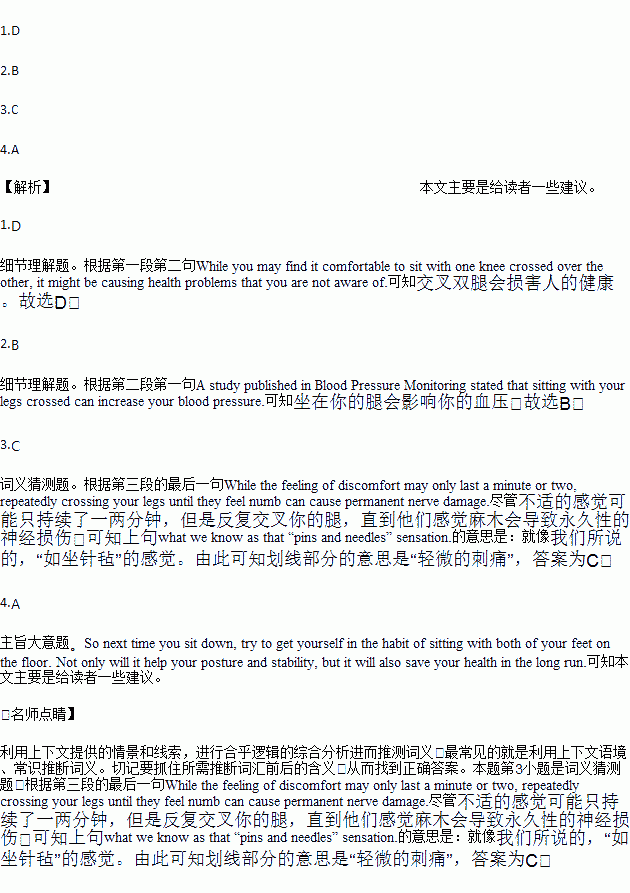题目内容
Crossing your legs is an extremely common habit; most people don't even notice that they're doing it when they sit down. While you may find it comfortable to sit with one knee crossed over the other, it might be causing health problems that you are not aware of.
A study published in Blood Pressure Monitoring stated that sitting with your legs crossed can increase your blood pressure. The reason for this is that the blood in your legs has to work against gravity to be pumped back to your heart and that crossing one leg over the other increases resistance, making it even harder for the blood to circulate. This causes your body to increase your blood pressure to push the blood back to the heart. You won't feel any immediate effects, but repeated, drawn-out increases in blood pressure can cause long-term health issues. So, planning to sit for a long period of time? Don't keep your legs crossed.
Crossing your legs at the knee can also cause pressure on the major nerve in your leg that passes just below your knee and along the outside of your leg, explains Richard Graves, a medical expert. This pressure can cause numbness and temporary paralysis (麻痹) of some of the muscles in your foot and leg, preventing you from being able to raise your ankle—what we know as that “pins and needles” sensation. While the feeling of discomfort may only last a minute or two, repeatedly crossing your legs until they feel numb can cause permanent nerve damage.
So next time you sit down, try to get yourself in the habit of sitting with both of your feet on the floor. Not only will it help your posture and stability, but it will also save your health in the long run.
1.What can we learn about crossing one's legs?
A. It is a very bad social habit.
B. It is usually practiced deliberately.
C. It can make others feel uncomfortable.
D. It can do harm to people's health.
2.According to the study, sitting with your legs crossed can______.
A. resist gravity effectively B. affect your blood pressure
C. lead to heart attacks easily D. improve the function of legs
3.In the third paragraph "pins and needles" probably means______.
A. serious muscle injuries B. being a little nervous
C. slight sharp pains D. being highly flexible
4.What is the main purpose of the text?
A. To give readers some advice. B. To compare common habits.
C. To evaluate effects of an experiment. D. To introduce research methods.
 阅读快车系列答案
阅读快车系列答案
